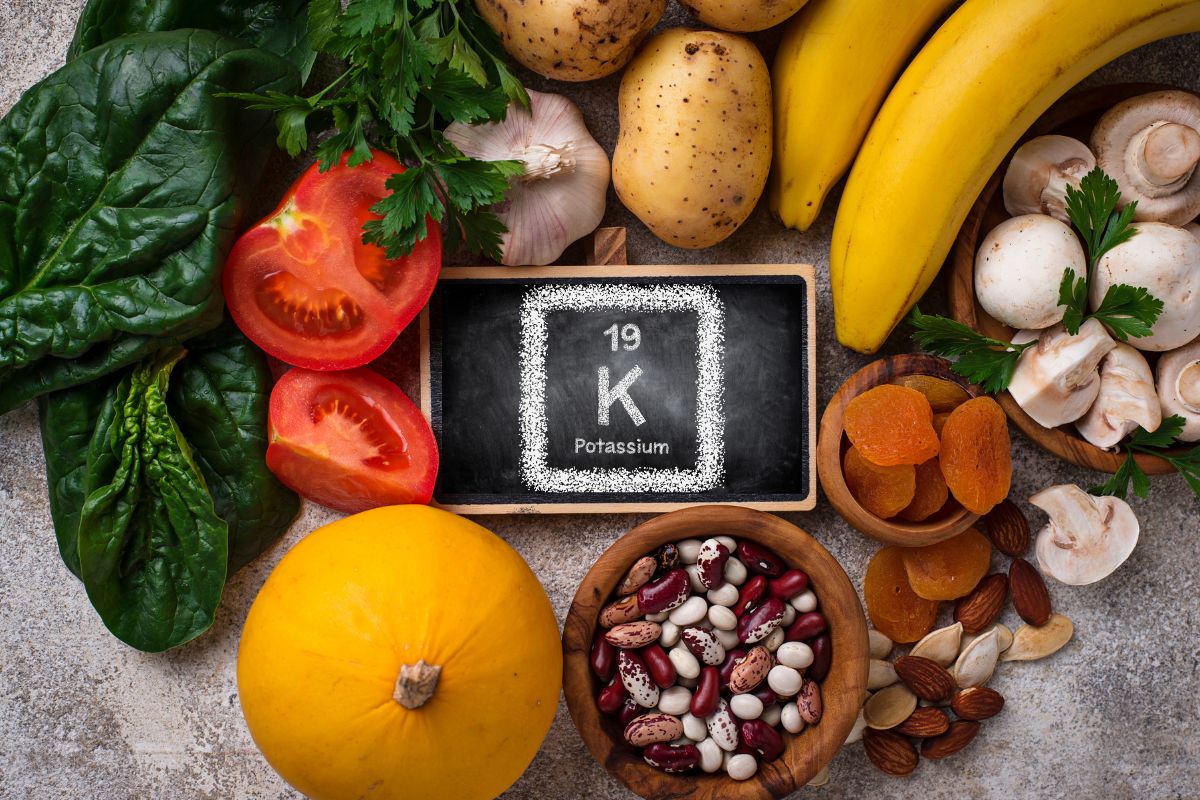Feeling constantly fatigued or dealing with persistent muscle cramps? These symptoms might indicate a potassium deficiency, a crucial nutrient essential for maintaining overall health.
Potassium plays a vital role in various bodily functions, including muscle contractions, nerve function, and fluid balance. An adequate intake of potassium is essential to avoid potential health issues that may arise from deficiency.
What is Potassium?
Potassium is a key mineral and electrolyte found naturally in numerous foods. It is critical for ensuring that your cells, nerves, and muscles operate effectively. As an electrolyte, potassium carries an electric charge vital for various physiological processes, including maintaining the right fluid balance in and between your cells. This balance is necessary for nerve impulses, muscle contractions, and heart function. Insufficient potassium intake may lead to various health concerns.

17 Potassium-Rich Foods
To help you maintain healthy potassium levels, consider incorporating these 17 potassium-rich foods into your diet:
- Bananas: A medium banana provides approximately 400 mg of potassium, making it a convenient snack.
- Sweet Potatoes: One medium sweet potato contains around 540 mg of potassium and is also rich in vitamins A and C.
- Avocados: Half an avocado provides about 345 mg of potassium along with healthy fats and fiber.
- Spinach: One cup of cooked spinach offers about 839 mg of potassium and various minerals like iron and magnesium.
- Tomatoes: A cup of tomato sauce can contain up to 728 mg of potassium.
- Beans: Half a cup of white beans provides approximately 600 mg of potassium, making them rich in protein and fiber.
- Oranges: One cup of orange juice contains around 496 mg of potassium.
- Yogurt: A cup of plain yogurt provides about 579 mg of potassium and is rich in calcium.
- Salmon: A 3-ounce fillet supplies about 534 mg of potassium and is high in omega-3 fatty acids.
- Coconut Water: One cup contains about 600 mg of potassium, ideal for hydration.
- Butternut Squash: One cup of cooked butternut squash offers approximately 582 mg of potassium.
- Potatoes: A medium potato with skin contains about 926 mg of potassium.
- Dried Apricots: A half-cup provides around 1,101 mg of potassium, making them a sweet, portable snack.
- Lentils: One cup of cooked lentils contains approximately 731 mg of potassium and is a great plant-based protein source.
- Acorn Squash: A cup of baked acorn squash has about 896 mg of potassium.
- Pomegranate: One fruit provides around 666 mg of potassium and is rich in antioxidants.
- Swiss Chard: One cup of cooked Swiss chard contains about 961 mg of potassium.
Including these foods in your meals can significantly enhance your potassium intake, supporting your health.

Why We Need Potassium in Our Diet
Potassium is essential for several bodily functions vital for maintaining good health:
- Maintaining Fluid Balance: Works alongside sodium to regulate body fluid distribution.
- Supporting Muscle Contractions: Facilitates electrical impulses crucial for muscle function.
- Nerve Function: Aids in generating and transmitting electrical signals in the nervous system.
- Blood Pressure Regulation: Counteracts sodium to help control blood pressure levels.
- Preventing Kidney Stones and Enhancing Bone Health: Potassium citrate helps neutralize urinary acids and reduces calcium excretion.
- Enhancing Digestive Health: Regulates the contraction and relaxation of digestive tract muscles.
- Reducing the Risk of Stroke: Helps maintain heart health and proper electrolyte balance.
How Much Potassium Do We Need?
The recommended daily intake of potassium varies based on various factors, including age, gender, and life stage:
- Adults: Approximately 2,500 to 3,000 mg daily.
- Children: Varies by age, but generally lower than adult recommendations.
- Pregnant and Breastfeeding Women: About 2,900 to 3,300 mg daily.

Special Considerations
Individuals with specific lifestyle factors or health conditions might need to adjust their potassium intake:
- Athletes may require more potassium due to losses through perspiration.
- People with Health Conditions such as chronic kidney disease should tailor their potassium intake based on medical advice.
- Dietary Habits: A diet high in processed foods often lacks potassium, necessitating a focus on fresh produce.
Symptoms of Potassium Deficiency and Excess
Maintaining balanced potassium levels is crucial for health. Both deficiency (hypokalemia) and excess (hyperkalemia) can present significant health risks.
Deficiency Symptoms:
- Muscle weakness and cramps
- Fatigue and lethargy
- Irregular heartbeat
- Constipation
- Numbness and tingling
- Breathing difficulties
- Mood changes
Excess Symptoms:
- Muscle weakness
- Heart palpitations
- Nausea and vomiting
- Shortness of breath
- Chest pain
If you suspect an imbalance, consult a healthcare provider for testing and guidance.

Using NoSalt as a Potassium Source
If you aim to increase your potassium intake, consider using NoSalt, a salt substitute rich in potassium chloride. It provides a healthy alternative for seasoning meals and helps manage blood pressure by reducing sodium intake while boosting potassium levels.

Key Takeaways for Maintaining Potassium Levels
Incorporating potassium-rich foods into your diet is an effective way to support overall health and maintain optimal bodily functions. By making small dietary adjustments, you can prevent deficiencies and boost your well-being significantly.

By prioritizing potassium in your diet, you ensure your body can function optimally, helping you live healthier and more actively.
Discover more from Marki Mugan
Subscribe to get the latest posts sent to your email.









